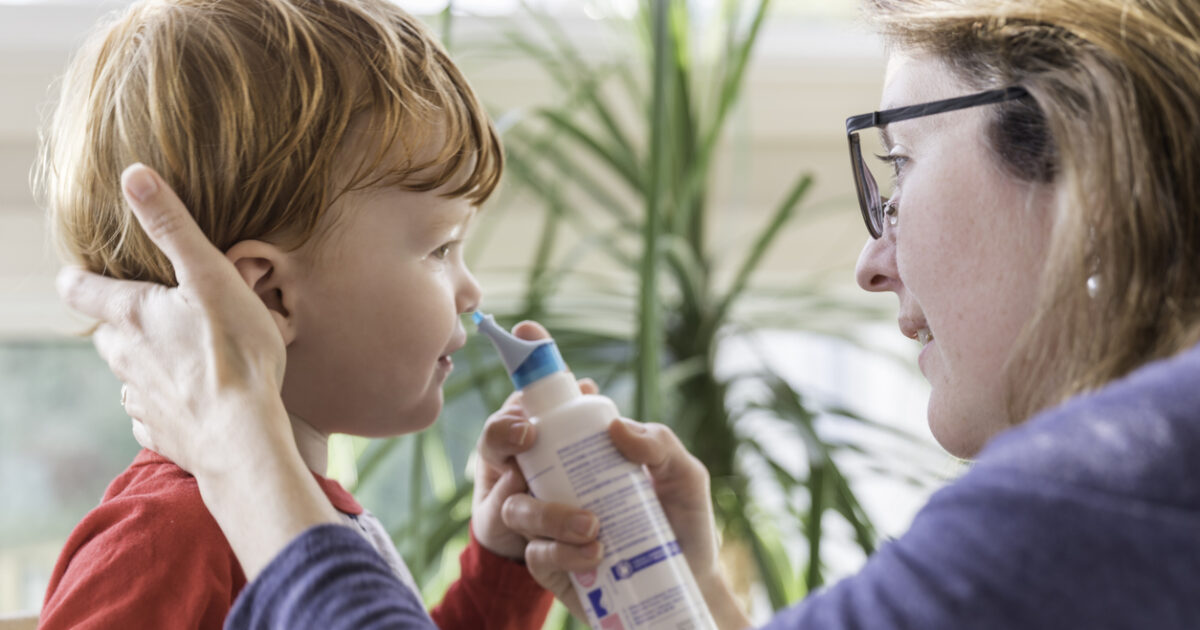For the first time this year, nasal is expected to be available in Greece vaccine against flufree for all children aged 2 to 5 years.
Children in Greece are vaccinated against influenza, only with the vaccine circulating injectable. A fact that causes a “headache” in parents and pediatricians, as most children aged 2 to 5 have phobia in the needle piercing.
The new nasal vaccine is administered in a more “friendly” way for children, namely spray sprayed on the nose, which is expected to make it more acceptable than young children.
Its main advantage is the ease of administration and its immediate action on the respiratory tract, that is, to the point where the virus enters.
This vaccine has been used for years in countries such as the US and Britain, while in 2024, American Food and Drug Administration (FDA) He approved it for self -catering and home caregiver, only eligible groups of the population and adults over 18 years of age, after approval of a healthcare professional.
In terms of efficacy, international studies show that nasal vaccine is at least as effective as injectable children.
In Greece they are expected to be allocated about 50,000 doseswith the aim of covering the age group of 2 to 5 years. Pediatricians will be given the administration, as with other vaccines in the National Vaccination Program for children.
This year’s Vaccination Season against the influenza will begin – as every year – on October 1, immediately after the issuance of the relevant circular of the Ministry of Health.
Pediatricians wish all the children who have to receive the influenza vaccine to have been vaccinated by the beginning of November, as he said in the iatropedia.gr The Professor of Pediatrics and a member of the National Vaccination Committee, Vana Papaevangelou:
“Officially, vaccination begins on October 1st. We want children to be vaccinated by the end of October. The key to the new vaccine is the ease of use and the fact that it has the same effectiveness as the classic vaccine. Pediatricians will be granted to children 2 to 5 years old and will be compensated by the insurance funds. Our committee has given a great struggle to come, because we believe that this will increase vaccination against the influenza virus in the child population. Children do not want injections, nor do parents want to see them suffer, “she said.
Nasal vaccine: How is it administered
The pediatrician sprays a small dose in each nostril.
The process is fast, painless and does not need the child to do anything special.
Protection is built within about two weeks.
Which kids can’t make the new nasal vaccine
The new nasal vaccine, however, is not recommended for infants under 2 years, and there are significant contraindications for some groups of children aged 2-5.
Specifically, the vaccine is contraindicated for children:
With severe immunosuppression,
with active severe asthma and whistle,
taking chronic aspirin or salicylic drugs.
Also, it should not be administered to children who have recently taken anti-influenza anti-influenza drugs, as its effectiveness may be reduced. In these cases, the pediatrician will recommend the injectable form.
Nasal vaccine: side effects
Like any vaccine, nasal can cause mild side effects.
The most common are runny nose, light cough, low fever or headache.
These side effects are usually transient and do not require special treatment.
In rare cases, more serious reactions may occur, so parents should always inform the pediatrician of any child’s health problems before vaccination.
The selection of the vaccine type should always be done in collaboration with the pediatrician, who knows the child’s history and will guide the most appropriate form.
